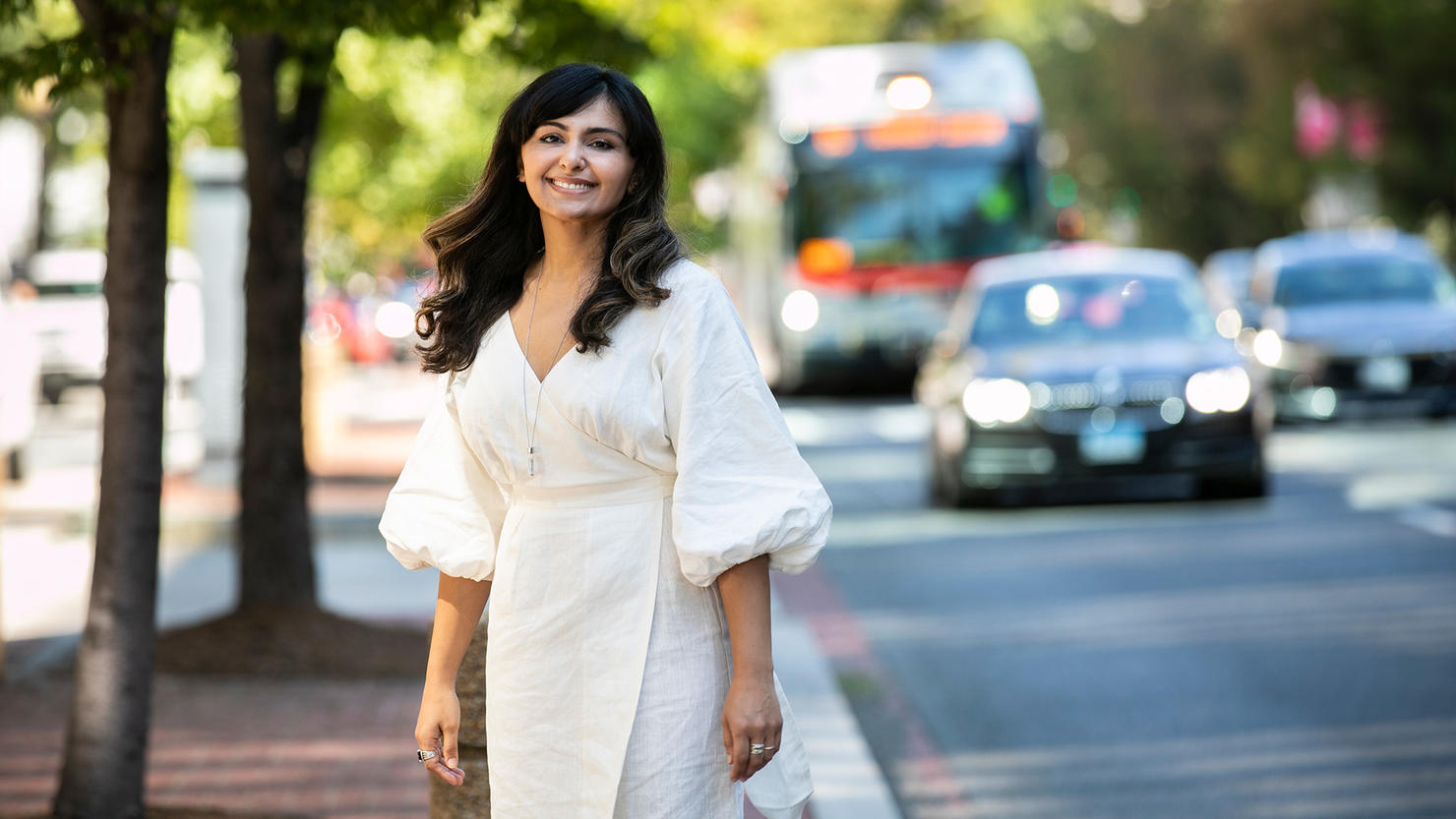Dilafruz Khonikboyeva and her family won the Green Card Lottery while living through Tajikistan’s civil war, but they didn’t know about it until the years-long blockade was lifted in 1995. They crossed multiple battle lines to reach the U.S. consulate in Moscow. Luckily, even though their green cards had expired by the time they arrived, the U.S. government honored them, Khonikboyeva said.
“Coming as a child from conflict, I was trying to understand how things like that happen,” said Khonikboyeva, who said she escaped the war at age 7 and remembers her mother selling her jewelry so her family could have carrots to survive the food blockade.

Such questions motivated Khonikboyeva to formally study conflict. She said she chose to study for her bachelor’s and master’s degrees at George Mason University’s School for Conflict Analysis and Resolution (S-CAR) due to its international reputation as a leader in the field, the university’s diverse student body and Mason’s proximity to Washington, D.C.
Professors provided tangible knowledge that she has continuously applied in her professional career, Khonikboyeva said.
“Right out of school, I spent eight years working at USAID, doing the same kind of work people did for me as a kid,” she said.
That includes coordinating with donors, governments and the United Nations to secure food and humanitarian aid in countries at war, said Khonikboyeva, who is now a global lead at the Aga Khan Foundation, where she develops communications and policy strategy for 30 countries in fragile and conflict zones.
What Khonikboyeva learned at S-CAR allows her to evaluate active indicators in the conflict-affected countries in which she works, she said. She knows what to look for to estimate if a conflict will continue, for how long, if peace will be achieved, and how likely a country is to remain at peace.
Classes on the dynamics of diaspora and civil wars taught by Mason professors Thomas Flores and Terrance Lyons “fundamentally changed how I thought about my past, but also my future,” Khonikboyeva said.
Hoping to make an even greater impact in the future, Khonikboyeva continued her education in 2019 in the Presidential Leadership Scholars program, which, according to its mission statement, brings together a diverse network of leaders to collaborate and make a difference in the world.
During the program, Khonikboyeva learned lessons in leadership by studying the presidential experiences of George W. Bush, Bill Clinton, George H. W. Bush and Lyndon B. Johnson. She heard about civil duty and servant leadership, attended classroom sessions on everything from communication to economic theory, and worked on a personal leadership project aimed at empowering Americans to break down divides and have difficult conversations.
“Conflict is the perceived divergence of interest,” Khonikboyeva said. “[The campaign and its accompanying digital resources] will help people understand that conflict can be a positive thing and can bring us to understanding.”
Khonikboyeva, who believes she is the first Mason alum to be accepted into the Presidential Leadership Scholars program, said her campaign is in the development stages, but she hopes to involve Mason by collaborating with professors.
“[S-CAR’s professors’] investment in their students continues forever,” Khonikboyeva said. “They’ve been such a part of my life, and I think their work is so important.”
“She’s smart, hard-working and tenacious,” Lyons said. “I particularly admire her ability to serve as a bridge between communities, even when they are as far flung as the mountains of Tajikistan and the world of development professionals in Washington. Her commitment to conflict analysis and resolution is heartfelt, but she also has an entrepreneur’s eye toward finding creative opportunities.”
